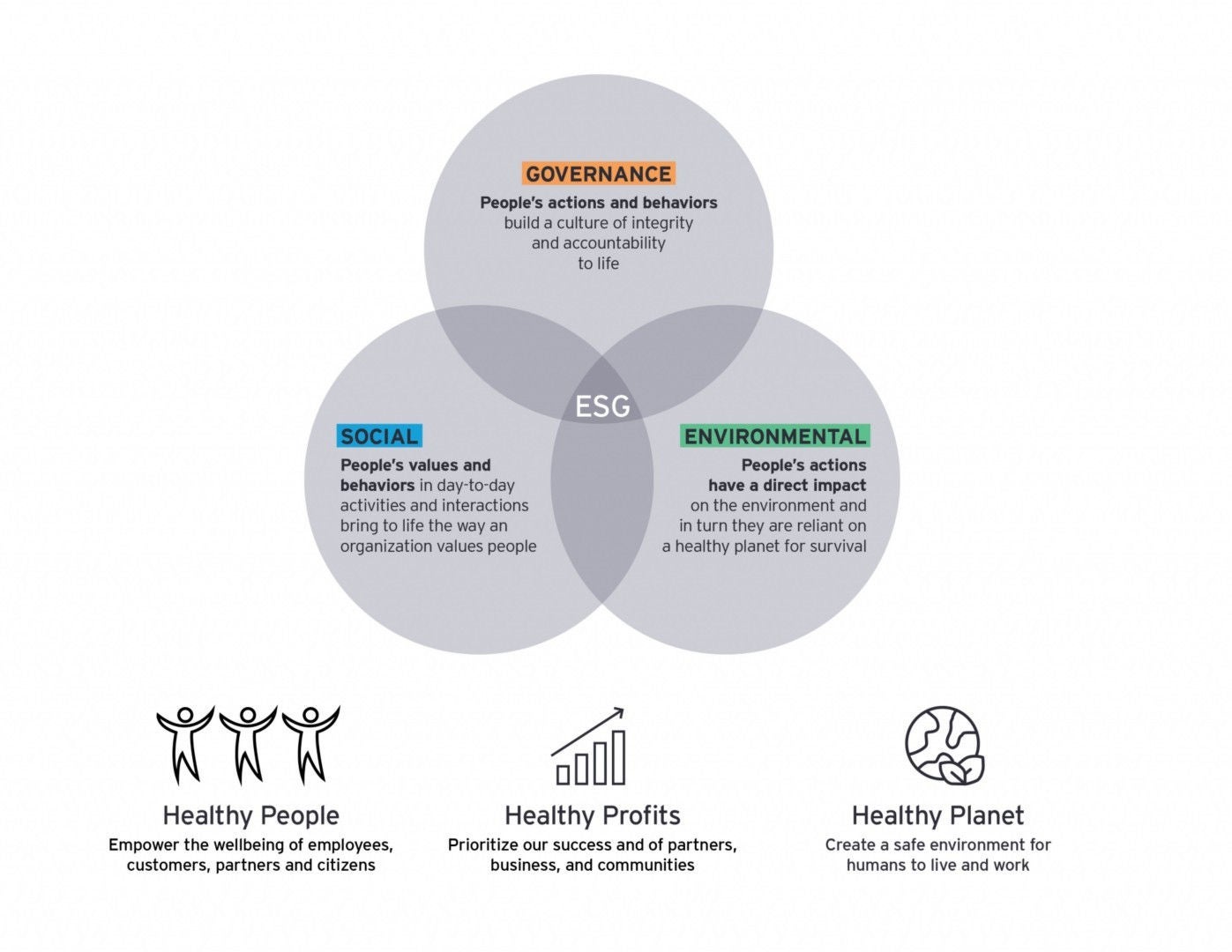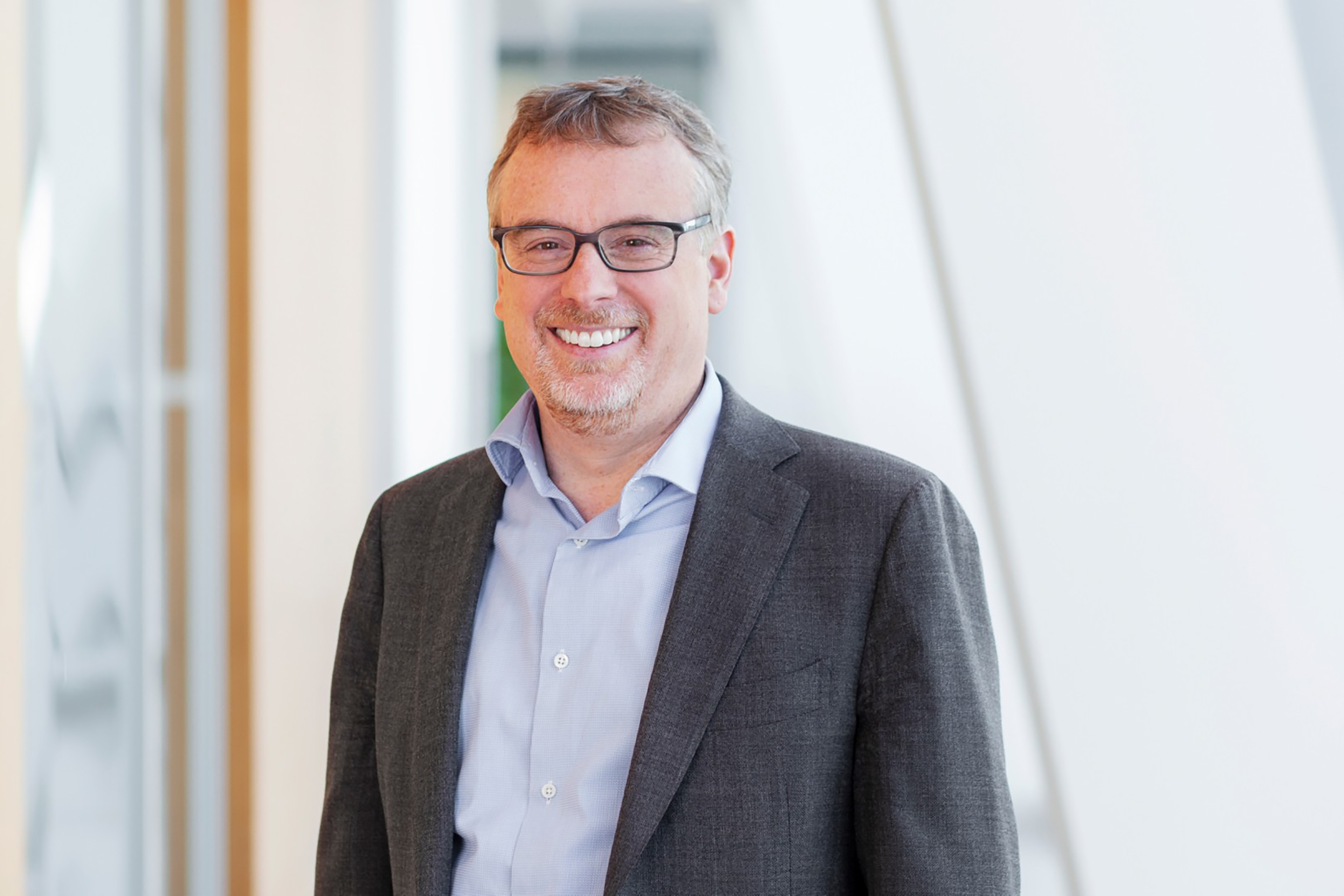EY refers to the global organization, and may refer to one or more, of the member firms of Ernst & Young Global Limited, each of which is a separate legal entity. Ernst & Young Global Limited, a UK company limited by guarantee, does not provide services to clients.
People Advisory Services and Sustainability
People’s mindsets, values and actions have an impact on ESG through the decisions they make and their day-to-day activities. Our team seeks to align organizations’ structures, processes, policies and ways of working to reinforce the behaviours required to enact and enable their ESG strategy and reporting and achieve their ESG objectives through performance improvement initiatives.
Corporate responsibility is more than “giving back” in good times. Companies prosper because of the contributions they make to society.
As ESG expands from a risk mitigation initiative to an enterprise-level transformation, corporations must commit to building a future where people have the best opportunity to thrive. Stakeholders – from investors to employees and the community – increasingly hold companies responsible for a balanced ESG strategy that supports corporate purpose and strategic vision. According to the EY 2022 Work Reimagined Survey, nearly half (43%) of employees surveyed are open to leaving their company for new roles. However, per the World Economic Forum’s The Future of Jobs Report 2020, this figure drops to 12% if employees believe their company is making a positive impact in the world.
Successful transformations, such as for ESG, require putting humans at the centre. The S pillar extends beyond diversity, equity and inclusiveness (DE&I) and employee wellbeing. S leaders prioritize culture, leadership, teaming, total rewards, belonging, behaviour change, learning and other areas to create a healthy planet for all humans, including employees at work and at home, employees’ families, customers, contingent workers and the communities in which companies operate.
Organizations with a balanced S:
- Proactively monitor and manage people-related compliance and risk management
- Apply an ESG filter to employees at work
- Enable behaviours, benefits and incentives to promote employee sustainability
- Advance employee initiatives and programs that create positive social impact and corporate citizenship

Organizations and leaders have significant new opportunities to shift the focus from an employee value proposition to a human value proposition and innovate people-first programs and solutions that meet regulatory requirements and stakeholder expectations. In doing so, they advance a path to healthy profits and a better world.



Engaging employees on the sustainability journey
We put people at the centre of your organization’s sustainability journey, from aligning and equipping “human first” leadership and raising your employees’ sustainability IQ, to designing rewards programs that drive accountability and incentivize the right behaviours.
This also includes driving engagement, co-creation, community and culture around the shared purpose of building a sustainable world.
Making a difference through talent mobility and hybrid work
We work with you to design mobility programs and hybrid work strategies that align to your organization’s sustainability objective.
From driving towards net-zero goals to creating equitable access to mobility opportunities — making a difference to the organization, your employees and communities around the world.
Equipping employees with future skills
We help equip your employees with the skills they want and need to succeed in their jobs and maintain market relevance.
This includes assessing skill gaps and defining learning pathways and reskilling or upskilling strategies to adapt to market forces like the green economy or workforce digitalization.



Strengthening sustainable working life and advancing the DE&I agenda
We help clients build a better working day, every day, through healthy and engaged workplaces.
By addressing social, financial, physical and mental/emotional wellbeing, we can help you support employee productivity, health, adaptability, connection and happiness.
Incentivizing the right behaviours
We design reward and remuneration programs across the organization that serve as a catalyst for behavioural change at scale and create a sense of urgency for action.
Compliance and reporting
We implement the right metrics and reporting processes to monitor progress towards sustainability goals and real behavioural change.
Our latest thinking
- Related articles
- Webcasts
Related articles
Why putting Humans@Centre is critical to successful ESG transformation
People thrive when environmental, social and governance (ESG) frameworks put humans at the heart of strategy design. This thought should fuel ESG transformations.
Webcasts





